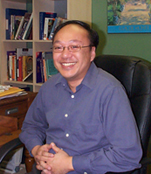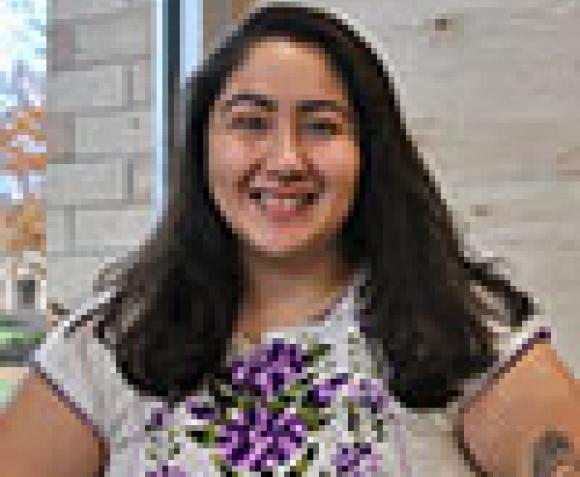How to Think, Not What to Think
 Sociology professor Leslie Wang has a sign on his office wall that reads, “I don’t have a problem with caffeine. I have a problem without it!” A group of sociology majors gave him the sign as a gift, knowing he can’t live without his daily dose, or doses, of java.
Sociology professor Leslie Wang has a sign on his office wall that reads, “I don’t have a problem with caffeine. I have a problem without it!” A group of sociology majors gave him the sign as a gift, knowing he can’t live without his daily dose, or doses, of java.
Wang may be a coffee connoisseur, but it’s not just his love for the drink that he shares with college students, it’s also café culture, which he says is a sociological study all its own. It’s his job to study people—whether they’re seemingly stereotypical urbanites ordering low-fat macchiatos at a counter or the students that fill his own classrooms.
While he was born in Hong Kong, Wang emigrated with his parents at age four to a suburban town 100 miles north of New York City. He was the only Chinese-American in his school. “Being bi-cultural in the U.S., one becomes very aware that one is different and doesn’t necessarily know why,” says Wang.
He grew up to study sociology, earning bachelor’s and master’s degrees from The State University of New York (SUNY) and a PhD in educational sociology from the University of Toledo, where he taught full-time for 15 years.
Wang’s particular interests focus on social class, racial, and gender-based issues in schools. He has been teaching at Saint Mary’s since 2006 and conducts courses on social inequalities, whiteness studies, and sociological research methods—the how-to of sociology—among other topics.
His aim is to share with his students an interest in people and how various societies treat their own members. He says that all societies have groups in power and groups that are oppressed. “The purpose of studying these groups is to ask the question ‘how can we make a society that is more equitable?’” he says.
The topic is up for discussion in his classrooms. But while Wang offers real-world examples and asks a lot of directed questions, he says, “My goal is to teach the students how to think, not what to think.”

